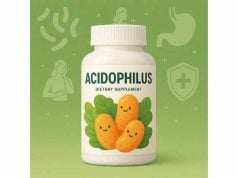
Chlorella has gained increased attention as a powerful supplement for enhancing eyesight and overall ocular wellness. High in nutrients, this freshwater algae has shown promise in promoting healthy retinal function, protecting delicate eye structures, and possibly alleviating common vision issues. For those looking to support their eyes naturally, Chlorella’s unique composition offers a valuable ally. In this article, we’ll explore how Chlorella improves vision, discuss the science behind its eye-related benefits, and outline usage tips to help you incorporate it seamlessly into your wellness routine.
Table of Contents
- Exploring Chlorella: A High-Potency Algae
- How Chlorella Works to Enhance Vision
- Unique Health Gains for Your Eyes
- Guidelines for Using Chlorella Effectively
- Reviewing Scientific Studies
- Frequently Asked Questions
- References and Sources
Exploring Chlorella: A High-Potency Algae
Chlorella is a genus of single-celled freshwater algae that stands out for its dense nutritional profile and potential health-promoting properties. Often described as a “green superfood,” this plant-based supplement contains vitamins, minerals, antioxidants, essential fatty acids, and an abundant supply of chlorophyll. Its vibrant green hue attests to the high chlorophyll content, which is one of the features that consistently draws health enthusiasts toward adding Chlorella to their diets.
Historical Perspective and Basic Properties
Believed to be among the earliest life forms on our planet, Chlorella was first identified in the late 19th century. Researchers soon discovered it to be an unusually complete food source because it offers a balanced mix of macro- and micronutrients. Some of its notable constituents include:
- Proteins: It can provide a robust protein content, sometimes as high as 50–60% of its total mass.
- Essential Amino Acids: Chlorella offers all nine essential amino acids crucial for cellular repair, including leucine, valine, and lysine.
- Vitamins: This algae supplies vitamins A, C, E, K, and many B vitamins. Vitamin A, in particular, has a well-known link to healthy vision.
- Minerals: Chlorella is a source of iron, magnesium, and zinc, among other vital minerals that support physiological processes, including those related to ocular health.
- Antioxidants: Beyond chlorophyll, which can assist in detoxification, Chlorella also contains beta-carotene, lutein, and other carotenoids that fight against oxidative stress.
Cellular Structure and Digestibility
Despite its small size, Chlorella’s robust cellular structure is one reason why processing techniques often involve mechanically breaking or cracking its cell walls. Doing so makes the nutrients more bioavailable, allowing the body to absorb them more efficiently. If the cell wall remains intact, our digestive tract has difficulty accessing the full range of Chlorella’s healthful components. Many reputable supplement manufacturers highlight that their Chlorella has been processed for optimal digestibility.
Synergy with Eye Health
For anyone interested in maintaining or improving ocular performance, the synergy between Chlorella’s nutrients is especially important. Carotenoids like lutein and beta-carotene are recognized for their connection to visual clarity and retina health. Meanwhile, chlorophyll and essential vitamins can support eye tissue repair and reduce oxidative damage. While Chlorella is far from a “magic bullet,” its broad nutritional spectrum makes it an appealing option for individuals seeking natural means of supporting their vision.
Sustainability and Environmental Factors
From an environmental standpoint, Chlorella cultivation involves relatively low resource use compared to many other dietary supplements. It can be grown in controlled environments, ensuring product purity and consistent quality. Some producers are mindful of sustainable practices, using minimal water and eco-friendly energy sources.
In essence, when exploring Chlorella as a potent algae supplement, remember that its wealth of nutrients can align with a variety of health goals, not least of which is vision enhancement. As we delve further, you’ll gain a deeper understanding of how these various nutrients converge to deliver meaningful vision benefits and better overall eye health.
How Chlorella Works to Enhance Vision
The buzz around Chlorella Improves Vision is tied to the algae’s nutritional makeup, which can address several areas critical to maintaining or sharpening eyesight. Components such as carotenoids, antioxidants, and essential fatty acids come together to offer a multi-faceted approach for safeguarding eye structures and promoting visual acuity. Below, we’ll dissect the primary ways Chlorella influences vision health.
Supporting Retinal Function
The retina is a thin layer of tissue located at the back of the eye, responsible for converting light into neural signals. These signals ultimately travel to the brain, where they are processed into images. Chlorella contains vitamins A and E, along with beta-carotene, which are known to aid the delicate photoreceptor cells in the retina. Ensuring these cells receive adequate nutrients may translate into improved night vision, sharper contrast detection, and, in some cases, a reduced likelihood of retinal degeneration.
Strengthening the Macula
Another key player in the visual system is the macula, the central region of the retina that handles high-resolution, detailed sight. When light damage or oxidative stress accumulates, the macula can suffer, reducing one’s ability to see fine details or read small print. Lutein, found in Chlorella, is widely recognized for shielding the macula against harm. By filtering out blue light and neutralizing free radicals, lutein helps sustain long-term macular integrity.
Combating Oxidative Stress
Oxidative stress is caused by an imbalance between free radicals and antioxidants in the body. This imbalance can damage cells, including those in the eyes. Chlorella’s carotenoids and other antioxidant compounds can combat oxidative stress, possibly resulting in a protective effect on overall ocular tissues. Chronic exposure to factors such as digital screens, environmental pollutants, and sunlight can heighten oxidative stress. Chlorella’s powerful antioxidants can help offset some of these negative effects, contributing to healthier eyes over time.
Eye Circulation and Pressure Regulation
Healthy circulation is vital for providing the eyes with oxygen and nutrients. Some studies suggest that components in Chlorella might have positive impacts on blood flow, including blood vessels in the eyes. Optimized circulation can aid in controlling intraocular pressure, a factor that, when elevated, may lead to concerns like glaucoma. Although more extensive research is needed, preliminary findings hint that balanced blood pressure and circulation can support stable vision, particularly as we age.
Immunological Support
The immune system also plays a role in eye health. Conditions like uveitis or keratitis have inflammatory components that can compromise vision. Chlorella’s unique polysaccharides and peptides may bolster immune function, making it easier for the body to combat low-level inflammation. A more balanced inflammatory response can result in fewer disruptions to eye structures, especially for individuals who are prone to immune-related or inflammatory eye conditions.
Detoxification Pathways
Heavy metals and other toxins can accumulate in the body and sometimes contribute to chronic health problems, including those affecting the eyes. One of Chlorella’s touted advantages is its potential for aiding in detoxification. The high chlorophyll content and special cell wall structure in Chlorella can bind certain toxins, helping the body eliminate them more efficiently. This detoxification aspect may have indirect benefits for maintaining healthy vision, though it should be recognized as part of a broader wellness plan.
Neural Connectivity
Vision doesn’t start and end with the eyes alone—there’s also an elaborate neurological component. Certain B vitamins and essential fatty acids found in Chlorella have roles in supporting nerve health. When nerves function optimally, they can send signals from the retina to the brain more reliably. While not all B vitamins are present in Chlorella in significant amounts, the synergy of its various nutrients may still contribute to improved neural health over time.
In sum, Chlorella improves vision by offering a comprehensive blend of nutrients that address different facets of eye health. From the macula and retina to blood flow and detoxification, each aspect plays a part in whether your eyesight remains sharp and resilient. By fortifying the body with key vitamins, minerals, antioxidants, and other nutrients, Chlorella can play a significant role in sustaining and potentially enhancing healthy vision.
Unique Health Gains for Your Eyes
Many people turn to Chlorella for its eye-health potential in the hope of preventing or slowing down age-related visual decline. Although no single supplement can do all the work, evidence suggests that Chlorella’s synergy of vitamins, minerals, chlorophyll, and carotenoids can create an environment that nurtures your vision in several compelling ways.
1. Potential Reduction in Digital Eye Strain
In the modern world, screen exposure is nearly constant—whether through computers, smartphones, or tablets. Extended screen time can strain the eyes, resulting in dryness, blurred vision, and headaches. Lutein and zeaxanthin, present in various algae, may help filter out some of the blue light from screens. While Chlorella’s exact lutein content can vary among strains and formulations, consuming it regularly may support better resilience against digital eye strain.
2. Strengthened Protective Eye Barrier
Some of Chlorella’s key nutrients are believed to strengthen the protective membranes around the eyes. Vitamin A and zinc both play roles in maintaining the structure of the cornea, the outermost layer of your eye. Zinc also assists in the metabolism of vitamin A, a nutrient strongly tied to vision function. Having an adequate intake of these nutrients can reduce dryness, irritation, or potential corneal damage.
3. Enhanced Light Adaptation
Shifting quickly from a bright environment to a darker one can be jarring. Chlorella’s combination of beta-carotene and vitamin A supports photoreceptor cells in adapting to changes in brightness. This adaptation process is crucial for safe nighttime driving, navigating dimly lit rooms, or participating in outdoor activities at dusk.
4. Helping Manage Inflammation
Eye inflammation can arise from allergies, infections, autoimmune disorders, or chronic irritation. Chlorella’s polysaccharides and unique peptides might help stabilize inflammatory pathways in the body. When inflammation is mitigated, the eyes can recover faster from irritants and maintain clearer, more comfortable vision. It’s not a cure-all for serious inflammatory conditions, but it can be a supportive measure alongside medical treatments.
5. Collagen Synthesis and Eye Connective Tissue
Connective tissues around the eyeball, such as the sclera and ocular muscles, rely on collagen. Vitamin C—present in some Chlorella strains—plays a vital role in collagen production. Adequate collagen synthesis can help keep the shape of the eye stable, support muscle strength, and potentially curb issues like eye fatigue. Though Chlorella doesn’t usually deliver massive amounts of vitamin C compared to citrus fruits, it still contributes to the nutrient’s overall dietary intake.
6. Lining of the Blood Vessels
The health of the microscopic blood vessels in your eyes is a crucial element of overall vision. Nutrients, including essential fats and certain minerals found in Chlorella, may help improve the integrity of these vessels and optimize blood flow. A well-supported vascular system in the eyes can reduce the risk of issues tied to poor circulation, such as macular degeneration or even retinopathy.
7. Alleviating Eye Fatigue
If you frequently experience eye fatigue or a sensation of heaviness around your eyes, it could be linked to nutrient imbalances or prolonged close-up tasks like reading or computer use. Chlorella’s profile of B vitamins can assist in energy production and nerve function, potentially easing some of the strain your eyes undergo daily. This aligns well with broader efforts—like taking regular breaks from screen work—to minimize fatigue.
8. Encouraging Longevity of Eye Cells
Finally, the best approach to healthy vision is often preventive. By reducing oxidative stress and stabilizing inflammation, Chlorella helps create an internal environment conducive to long-lasting eye cell integrity. Healthy, well-nourished cells are more resilient to age-related changes and environmental stressors. Regular, consistent consumption of Chlorella as part of a balanced diet can thus be seen as an investment in your long-term visual performance.
From these vantage points, we see how the phrase “Chlorella Improves Vision” isn’t just a catchy slogan—it’s anchored in the algae’s robust nutritional value and how it helps various eye structures. Although no supplement should replace comprehensive eye care, Chlorella can be a potent part of a well-rounded approach to nurturing and protecting your eyesight.
Guidelines for Using Chlorella Effectively
If you’re intrigued by Chlorella’s vision benefits and want to try it for yourself, proper usage is key. While many individuals experience positive effects, how you incorporate Chlorella into your diet can influence how much you benefit. Below, we’ll look at recommended dosages, forms of Chlorella, and tips for maximizing its potential to support eye health.
Selecting the Right Form
Chlorella is available in various forms:
- Tablets or Capsules: These are popular for their convenience and precise dosing. Choose brands that emphasize “broken cell wall” or “cracked cell wall” Chlorella, ensuring optimal nutrient absorption.
- Powder: Ideal for those who want to blend it into smoothies or other beverages. Powdered Chlorella can have a slightly earthy taste, but it pairs well with fruit-based drinks or added flavorings.
- Extracts and Liquids: Some companies produce liquid extracts, which may be beneficial for quick absorption or for people who have trouble swallowing tablets. However, these forms might be less common and can vary in potency.
Recommended Dosages
There isn’t a one-size-fits-all dosage for Chlorella, and the amount you need can differ based on factors such as age, existing health conditions, and personal health goals. That said, common daily dosages range from 2 to 5 grams. Some individuals take higher amounts (up to 10 grams per day) for more targeted detoxification or immune support. If the primary goal is to bolster vision and general eye health, starting with 2–3 grams daily is usually sufficient.
Important Note: Always check the manufacturer’s label for specific instructions. When in doubt, consult a healthcare professional who can offer guidance tailored to your health history and needs.
Timing and Pairings
Although Chlorella can be consumed any time of the day, many users find it more comfortable to take it with meals. Doing so not only helps with digestion but might enhance nutrient assimilation:
- With Breakfast: Taking your Chlorella in the morning can provide an energy boost and ensure you begin the day with a healthy dose of vitamins and minerals.
- With Lunch or Dinner: If you experience mild digestive discomfort with morning consumption, try taking it later in the day. It can combine well with a balanced meal, amplifying nutrient synergy.
- Pair With Vitamin C-Rich Foods: Since vitamin C can boost iron absorption—a mineral in Chlorella—consider pairing your Chlorella supplement with fruits like oranges or berries, or even a small glass of fresh juice.
Cycling and Duration
Some practitioners recommend “cycling” supplements—meaning you consume them for a set period and then take a break before resuming. While there’s no firm rule on how to cycle Chlorella, a common pattern might be three months of daily use followed by a one-month break. This can help you gauge whether you notice any significant changes in your vision or overall health.
Combining with Other Vision-Enhancing Nutrients
Although Chlorella itself delivers a host of vision-supportive nutrients, combining it with other beneficial compounds can lead to stronger results. For instance:
- Omega-3 Fatty Acids: Commonly found in fish oil, flaxseed, or algae-based supplements, these can further nurture retinal and macular health.
- Bilberry or Blueberry Extract: Known for supporting blood vessels in the eyes, anthocyanin-rich berry extracts can pair nicely with Chlorella.
- Lutein and Zeaxanthin Supplements: If your Chlorella product has limited amounts of lutein or zeaxanthin, you might consider an additional supplement specifically formulated for macular support.
Potential Side Effects or Precautions
Chlorella is generally considered safe for most individuals, but some may experience:
- Digestive Discomfort: Mild bloating or gas when starting out. Gradually increasing your dosage can help mitigate these issues.
- Allergic Reactions: Extremely rare, but possible. If you have a known allergy to algae or similar organisms, proceed with caution.
- Interactions with Medications: Certain medications, such as immunosuppressants, could interact with Chlorella’s immune-modulating properties. Always inform your healthcare provider about any supplements you’re taking.
Tracking Your Progress
If your main objective is to enhance vision, keeping a small journal or log can help you track any improvements. Note changes in clarity, your ability to adjust to low-light conditions, or whether you experience less dryness or irritation. While these changes may be subtle, observing incremental shifts can confirm that your approach is effective.
Using Chlorella effectively comes down to choosing a reputable product, sticking to a dosage that suits your needs, and combining it with supportive nutrients. When integrated into a well-rounded lifestyle that includes proper hydration, balanced meals, and regular eye exercises, Chlorella can be a strong ally in your quest for lasting visual clarity.
Reviewing Scientific Studies
Chlorella’s rising popularity is partly fueled by scientific and clinical research examining its impact on various health markers, including, though sometimes indirectly, those related to eye health. While not every study targets vision enhancements specifically, many explore factors—like oxidative stress, nutritional deficiencies, and inflammation—that are intimately connected with visual well-being. Below is an overview of relevant findings and how they reinforce the idea that Chlorella vision benefits can be substantial.
Investigations into Antioxidant Efficacy
Several peer-reviewed papers have highlighted Chlorella’s antioxidant properties. For example, a study published in the Journal of Medicinal Food discovered that Chlorella supplementation helped reduce markers of oxidative stress in participants over a span of weeks. Because oxidative stress can accelerate retinal damage and contribute to conditions like macular degeneration, it stands to reason that lessening oxidative stress could support overall eye health.
Eye-Specific Trials
Although direct clinical trials focusing exclusively on Chlorella’s effects on vision remain somewhat limited, certain research projects do measure eye-related biomarkers or note ocular improvements as secondary outcomes. One small-scale pilot study indicated that participants who supplemented with nutrient-rich algae, including Chlorella, reported fewer symptoms of eye strain and better contrast sensitivity. While such preliminary findings aren’t definitive, they pave the way for larger, more rigorous research efforts.
Nutritional Profile Validations
A recurring theme in scientific literature is the verification of Chlorella’s comprehensive nutritional content—particularly its levels of chlorophyll, beta-carotene, lutein, and various vitamins. Multiple lab analyses confirm that Chlorella stands out among plant-based foods for its dense protein, vitamin B12 (though the bioactive form in Chlorella varies), iron, and antioxidants. These findings confirm the potential for Chlorella to fill nutritional gaps that can impact eyesight, especially in individuals with diets low in leafy greens or other nutrient-dense foods.
Immune System and Inflammation Research
Some of the more robust studies on Chlorella investigate its role in modulating immune response and reducing inflammation. Since chronic inflammation is a risk factor for conditions ranging from arthritis to certain eye diseases, any supplemental strategy that can moderate inflammation is worth exploring. Research in the Nutrition Journal indicated that regular Chlorella intake resulted in lower inflammatory markers in adults, which can have a ripple effect on eye health, given the correlation between inflammation and vision disorders.
Heavy Metal Detox and Indirect Eye Benefits
One longstanding claim about Chlorella is its capacity to bind heavy metals and facilitate their removal from the body. A handful of studies, including those examining populations exposed to industrial pollutants, suggest that Chlorella supplementation might reduce the retention of certain toxic substances. Overexposure to heavy metals can worsen oxidative stress and systemic inflammation, both of which can damage delicate eye structures over the long term. If Chlorella indeed lessens the body’s toxic burden, this could indirectly protect ocular tissues.
Ongoing Areas of Investigation
Researchers continue to explore multiple aspects of Chlorella. Topics under active investigation include:
- Synergistic effects of combining Chlorella with other algae like Spirulina.
- Precise mechanisms by which polysaccharides influence immune cells, possibly aiding in conditions with an inflammatory or autoimmune eye component.
- Long-term studies to confirm or refute anecdotal reports of improved visual acuity, color perception, or clarity.
Interpreting the Data
While the scientific community generally recognizes that Chlorella is rich in nutrients and antioxidants, it’s important to approach the available data with a balanced viewpoint. Not all studies show dramatic results, and more specialized investigations are needed to pinpoint exactly how Chlorella might improve eye health outcomes in distinct populations (e.g., older adults, individuals with early macular degeneration, or heavy screen users).
Nevertheless, the collective body of research suggests that Chlorella fits well into a vision-supportive nutritional program. It’s not a silver bullet, but rather a holistic supplement that, when combined with a healthy lifestyle, can deliver measurable support for your eyes. If you’re curious about the specifics, consult peer-reviewed journals, speak with an optometrist or ophthalmologist, and monitor ongoing research to stay informed about the latest findings on Chlorella’s full range of capabilities.
Frequently Asked Questions
Does Chlorella improve vision naturally?
Chlorella supplies vitamins, carotenoids like lutein, and antioxidants that protect eye tissues. While not a miracle cure, it can support the retina and macula, possibly slowing the effects of oxidative stress, digital strain, and age-related decline, thereby aiding natural vision improvement over time.
Can I combine Chlorella with other eye supplements?
Yes. Chlorella’s nutrient richness pairs well with supplements such as omega-3 fatty acids, bilberry extract, or extra lutein. However, always consult a healthcare professional before starting new regimens, especially if you have specific health conditions or concerns.
How quickly will I notice improvements in my eyesight?
Results vary by individual and depend on lifestyle factors like diet, screen habits, and baseline eye health. Some notice subtle changes within a few weeks, while others may need consistent supplementation for several months to observe significant improvements.
Are there any interactions with prescription medications?
Chlorella may interact with immunosuppressants or thyroid medications. If you have a chronic condition or take prescription drugs, consult your doctor before adding Chlorella to your daily routine to ensure its suitability and safety.
Is all Chlorella the same?
Not exactly. Purity, cultivation methods, and processing techniques differ. Opt for a reputable brand that tests for heavy metals, uses broken cell wall technology for better absorption, and provides transparent labeling about its nutritional content.
References and Sources
- Journal of Medicinal Food – Several articles within this journal detail the antioxidant capacity of Chlorella and its potential for lowering oxidative stress.
- Nutrition Journal – Known for publishing studies related to Chlorella’s effects on inflammation and immune markers in healthy and at-risk populations.
- Ophthalmic Research – While not exclusively focused on Chlorella, this journal has examined how carotenoids, such as lutein and zeaxanthin, benefit macular health, indirectly supporting some of Chlorella’s advocated vision advantages.
- Clinical Nutrition Insights – Offers comprehensive analyses on micronutrient deficiencies that can contribute to age-related eye disorders, highlighting the role of nutrient-dense supplements like Chlorella.
- American Journal of Clinical Nutrition – This publication frequently reviews the importance of chlorophyll, beta-carotene, and other phytonutrients found in algae, supporting the premise that Chlorella aids in healthy aging, including eye function.
Consult these resources if you wish to examine the academic literature that supports the role of Chlorella for Eye Health. As research advances, new studies may provide even more detailed insights into how this algae improves vision, which could further validate or refine current findings.
Disclaimer:
This article is for educational purposes only. It does not replace professional medical advice, diagnosis, or treatment. Always seek the guidance of your physician or other qualified health provider regarding any medical condition or before making any major changes to your diet or supplement routine.
We encourage you to share this article on Facebook, X (formerly Twitter), or your favorite social platforms. Help spread the word about natural ways to support eye health, and don’t forget to follow us on social media for more insights!










